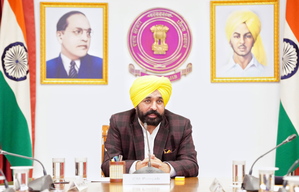Chandigarh, 25 March (IANS). The Comptroller and Auditor General (CAG) of India said on Tuesday that 6.5 to 20.74 percent of the health funds were not used from the budget allotted by the Punjab government.
The 2024 execution audit report of public health infrastructure and management of health services kept in the assembly said that the government was able to spend only 3.11 percent of its total expenditure on health services and 0.68 percent of GSDP during 2021-22, which is less than eight percent of the budget and 2.50 percent of GSDP.
The State Program Implementation Schemes for each year were presented to the Central Government with a delay of 10 to 108 days, which eventually delayed approval and resulting in the receipt of funds.
The CAG said that by March 2022, under the Punjab Nirogi scheme, a large amount of government money was lying unused outside the government account near the Punjab Nuogi Society (Rs 4.92 crore) and Chief Minister Punjab Cancer Relief Fund Scheme (Rs 76.81 crore). In addition, the user fee of Rs 1.94 crore collected by Rajindra Hospital, Patiala from 2021-22 and a concessional fee of Rs 85.70 crore transferred to the Punjab Health System Corporation was also lying outside the government account in violation of the provisions.
The implementation of centrally sponsored schemes like National Urban Health Mission, Family Welfare, Rejuvenation and National Child Health Program (RBSK) etc. in Punjab was not in accordance with the targets laid down for the schemes related to the schemes related to it.
It states that there was a decrease in the use of funds allocated under various schemes. There have also been cases of non -payment of financial assistance and incentives under the Family Welfare Scheme and Janani Suraksha Yojana.
There has been a significant decrease in the number of health institutions aspiring to get rejuvenation status and there has not been a stable increase in certified health institutions from national quality assurance standards.
As part of the National Child Health Program, mobile health teams were working with insufficient employees, causing adverse effects on children’s investigation.
Despite being determined by the central government, the mobile health teams did not have any necessary medicines, drops and ointments except iron and folic acid and albendazole.
The CAG said that the enclosed regulatory mechanisms are not working effectively to ensure responsible provisions of health services for people.
-IANS
PSK/Ekde
